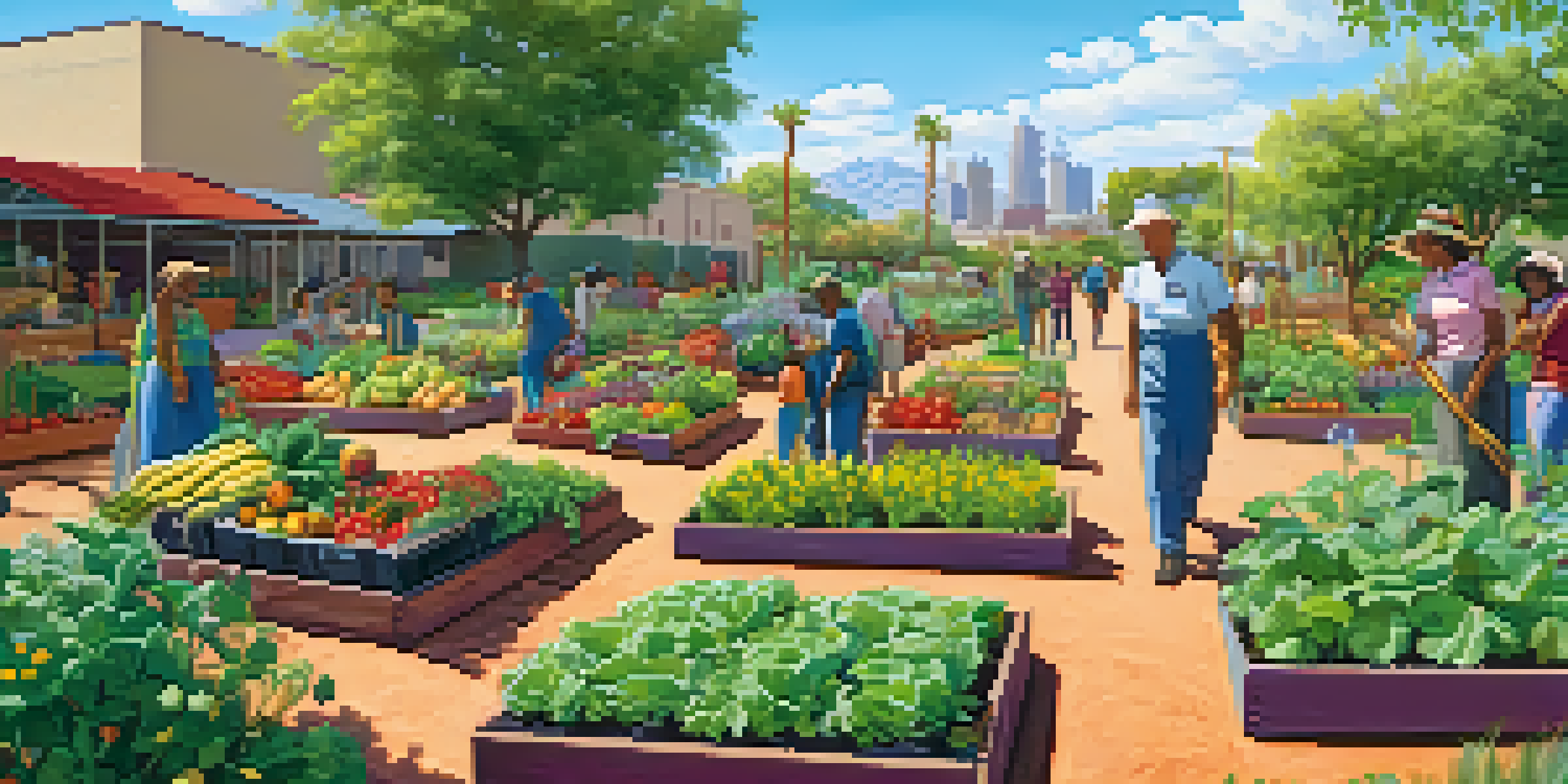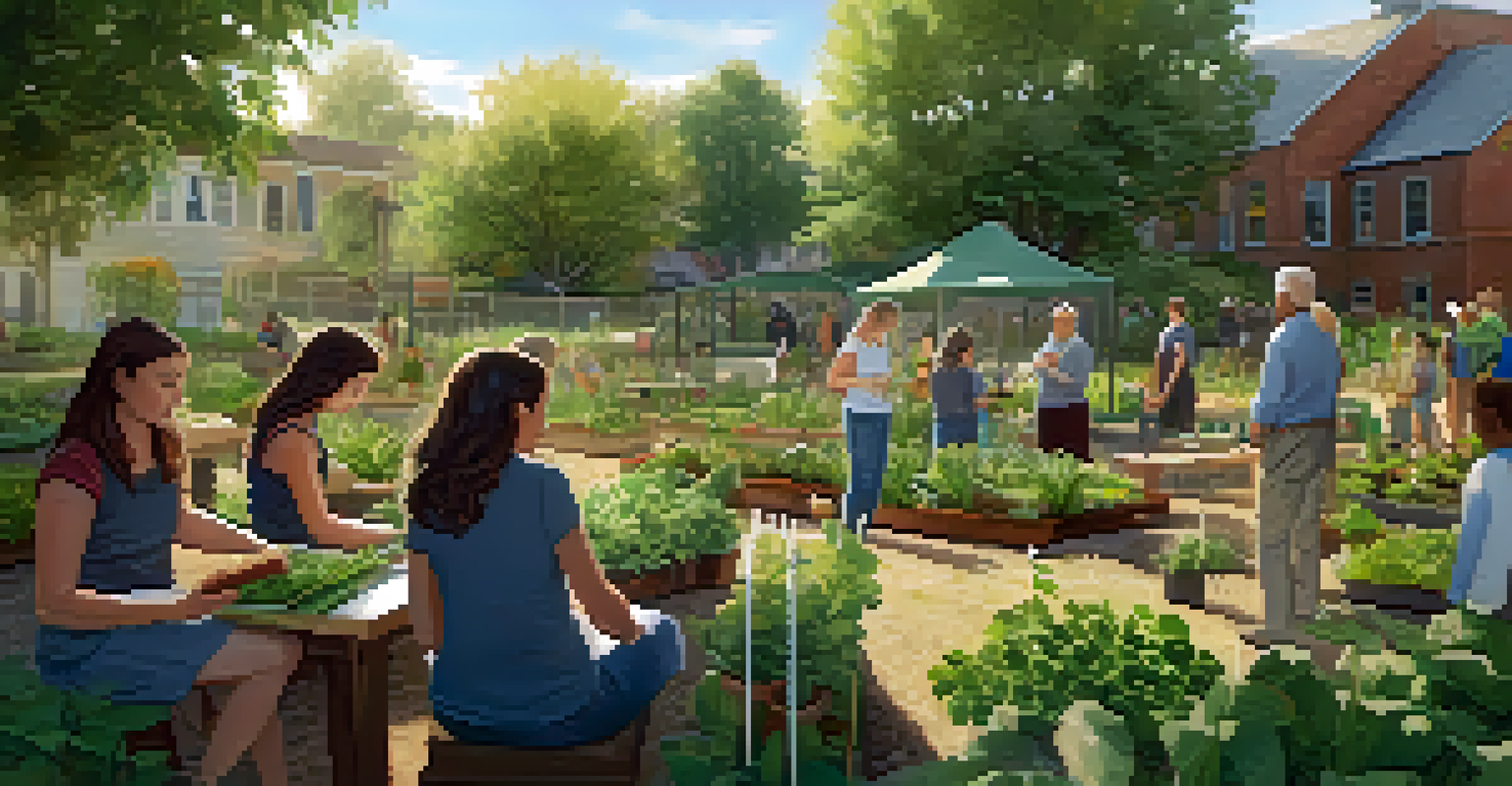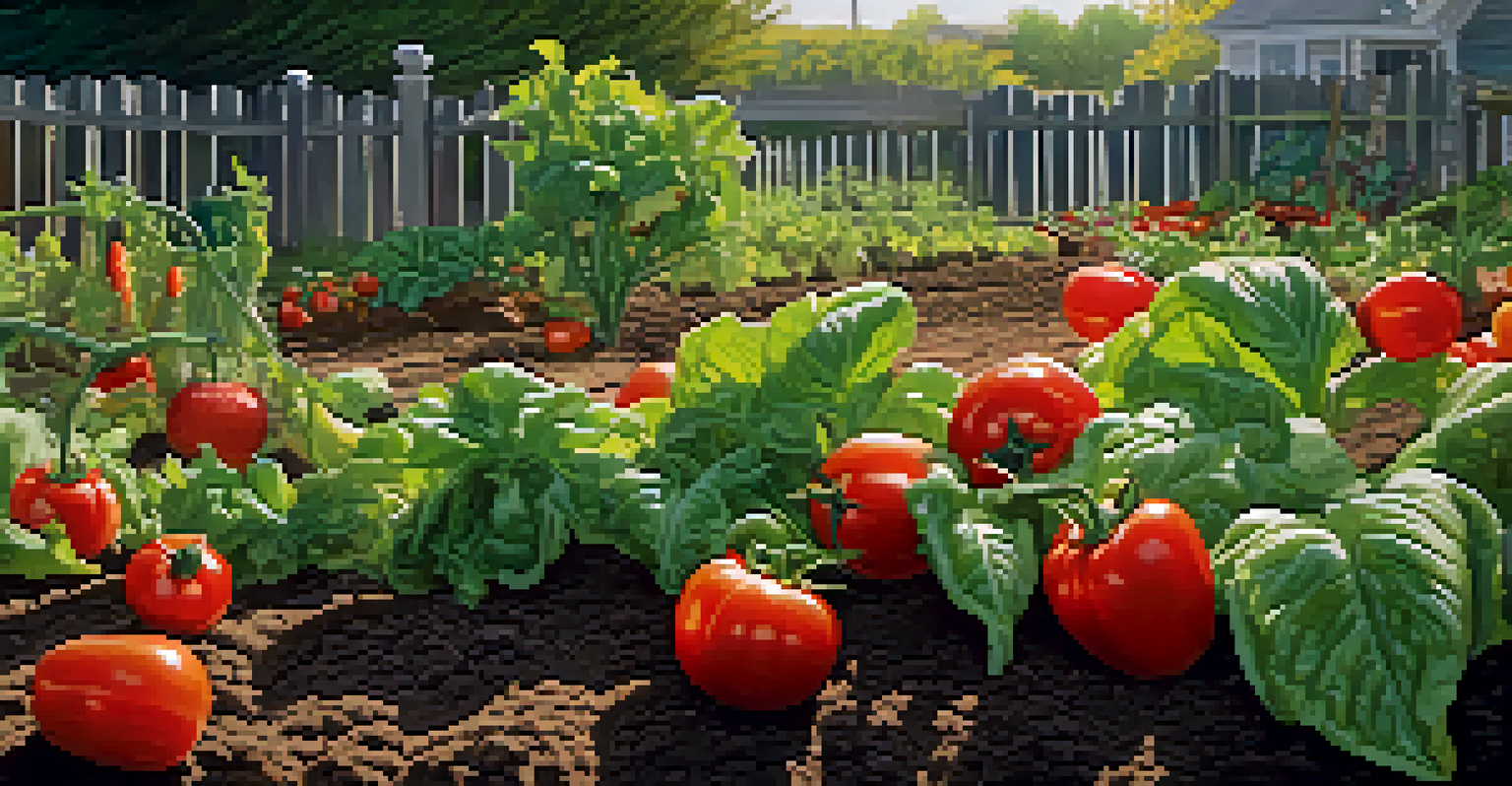Community Gardens: Cultivating Sustainability in Phoenix Areas

What Are Community Gardens and Their Purpose?
Community gardens are shared spaces where individuals come together to grow food and plants. These gardens serve a vital role in fostering community spirit while promoting sustainable practices. They allow residents to cultivate their own fruits, vegetables, and flowers, often on land that might otherwise go unused.
The best way to find yourself is to lose yourself in the service of others.
In Phoenix, where urban development is rapid, community gardens provide green oases that contribute to local food security. They empower people to take control of their food sources, reducing reliance on store-bought produce. This is especially important in areas where access to fresh fruits and vegetables is limited.
Beyond food production, community gardens also create opportunities for education and environmental awareness. They serve as living classrooms where people can learn about sustainable gardening practices, the importance of biodiversity, and the impact of local ecosystems.
Benefits of Community Gardening in Phoenix
Community gardens offer numerous benefits, starting with improved mental and physical health. Gardening is a great way to get outdoors, engage in physical activity, and relieve stress. For many, tending to a garden can be a therapeutic escape from the hustle and bustle of city life.

Additionally, these gardens foster social interaction and build community ties. Neighbors come together to share their gardening experiences, swap tips, and celebrate each other's successes. This sense of camaraderie can lead to stronger relationships and a more connected community.
Community Gardens Boost Local Food Security
In urban areas like Phoenix, community gardens empower residents to grow their own produce, reducing reliance on store-bought food.
From an environmental standpoint, community gardens contribute to urban biodiversity. They provide habitats for pollinators like bees and butterflies, which are essential for a thriving ecosystem. By planting a variety of species, gardeners can help maintain the ecological balance in urban settings.
How Community Gardens Promote Sustainability
Sustainability is at the heart of community gardening. These gardens often use organic practices that minimize chemical use, promoting healthier soil and plants. By encouraging composting and recycling, gardeners can reduce waste and create a more sustainable environment.
Nature does not hurry, yet everything is accomplished.
Moreover, community gardens can serve as a model for sustainable food systems. They showcase how local food production can reduce carbon footprints associated with transporting food over long distances. This localized approach to food sourcing not only supports the environment but also boosts the local economy.
Engaging in sustainable practices like rainwater harvesting and xeriscaping can also be beneficial. This is particularly relevant in Phoenix, where water conservation is crucial. Community gardens that utilize these practices can thrive even in the desert climate, demonstrating resilience and adaptability.
Getting Involved in Phoenix's Community Gardens
Getting involved in a community garden is easier than you might think! Many gardens in Phoenix welcome new members, regardless of gardening experience. You can start by reaching out to local gardening organizations or visiting community centers to find a garden near you.
Once you've found a garden, you can participate in various ways—whether it's renting a plot, volunteering your time, or simply attending events and workshops. Engaging with fellow gardeners can enhance your skills and knowledge, making the experience more enriching.
Gardens Enhance Community Engagement
These shared spaces foster social interaction, helping neighbors build connections through gardening activities and shared experiences.
Additionally, many community gardens offer educational programs for all ages. These programs can teach you everything from basic gardening skills to advanced sustainable practices, ensuring that everyone emerges with valuable knowledge and a deeper appreciation for local food systems.
Challenges Facing Community Gardens
While community gardens provide numerous benefits, they don’t come without challenges. One major hurdle is securing land for gardening purposes, especially in densely populated urban areas like Phoenix. Many gardens operate on leased or borrowed land, which can create instability.
Another challenge is maintaining community engagement and participation. As time goes on, interest can wane, leading to neglected plots and dwindling membership. It’s vital for gardens to continually foster community involvement through events, workshops, and social gatherings.
Lastly, funding can be an ongoing concern. Many community gardens rely on donations and grants for supplies, tools, and maintenance. Establishing a solid financial foundation can help ensure the longevity and success of these valuable green spaces.
Success Stories from Phoenix Community Gardens
Phoenix is home to several success stories that showcase the impact of community gardens. For example, the 'Garden of Tomorrow' has transformed a vacant lot into a vibrant space where locals grow organic produce. This initiative not only beautifies the area but also provides fresh food to families in need.
Another inspiring story is the 'Desert Botanical Garden Community Plot,' where residents collaborate to cultivate native plants. This garden not only promotes biodiversity but also educates visitors about the importance of preserving Arizona’s unique flora.
Sustainability Through Local Practices
Community gardens promote sustainable gardening methods, such as organic practices and water conservation, which are crucial in a desert climate.
These success stories highlight the power of community gardens in fostering resilience, education, and sustainability. They serve as a reminder that when people come together for a common cause, incredible things can happen.
The Future of Community Gardens in Phoenix
The future of community gardens in Phoenix looks promising as more residents recognize their importance. With growing interest in sustainability and local food sourcing, community gardens are likely to become even more integral to urban life. This trend is not only beneficial for the environment but also for the community's social fabric.
As city planners and organizations begin to prioritize green spaces, we may see more support for community gardens through funding and resources. Initiatives that integrate gardens into urban planning can create a more sustainable and resilient city landscape.

Moreover, the rise of technology can enhance the gardening experience. Apps and online platforms can connect gardeners, share resources, and even facilitate the exchange of produce. With these advancements, community gardens can thrive, ensuring that they continue to play a vital role in Phoenix's sustainability efforts.